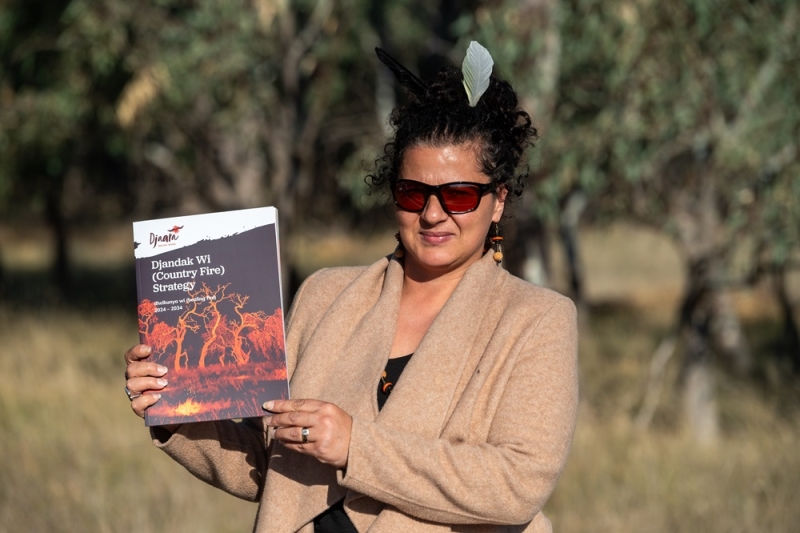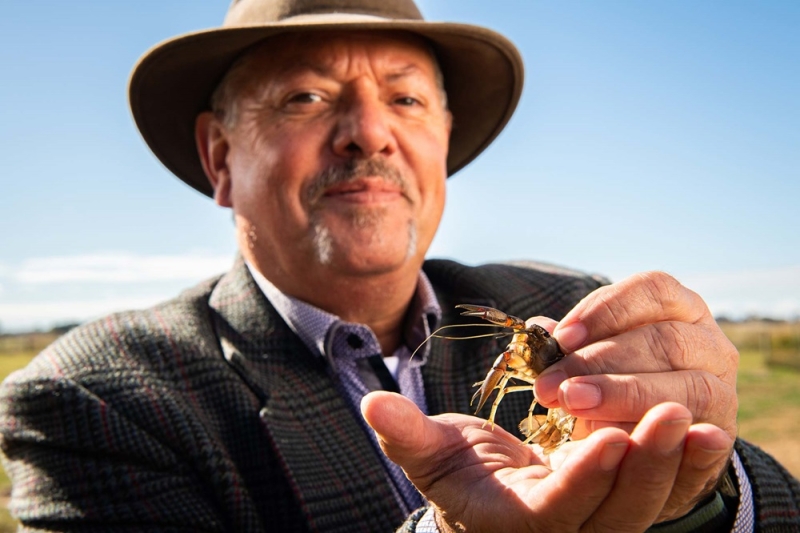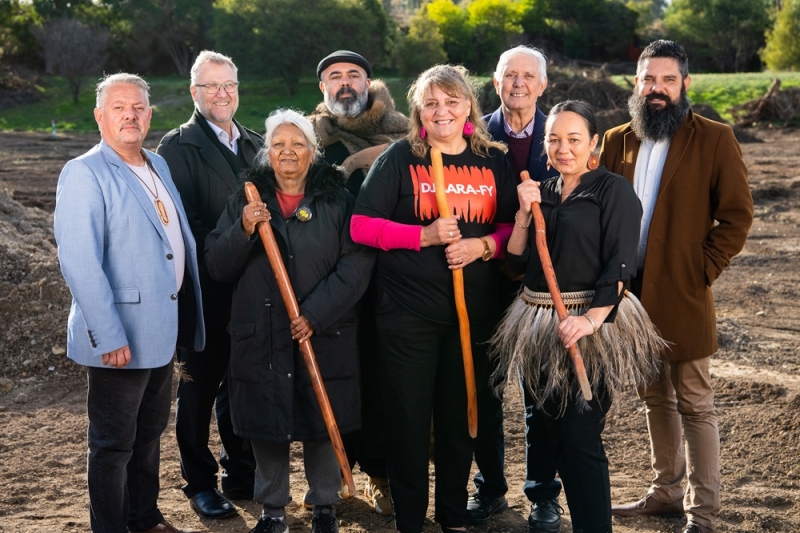Djaara-fying: Getting results the Dja Dja Wurrung way
In two decades, DJAARA, the Dja Dja Wurrung Clans Aboriginal Corporation (DDWCAC) has grown from a small corporation into a multi-million-dollar organisation with multiple enterprises. Good governance has been essential to this growth. Today, the Dja Dja Wurrung Group – DJAARA and its expanding Dja Dja Wurrung Enterprises – delivers employment and economic benefits to Dja Dja Wurrung People in Victoria while meeting DJAARA’s goals to care for Country.
Representing Dja Dja Wurrung People
In 2013 DJAARA entered into a comprehensive Recognition and Settlement Agreement (RSA) with the State of Victoria. The RSA recognises Dja Dja Wurrung People as the Traditional Owners of Dja Dja Wurrung Country in Central Victoria. It lays out their rights, including to actively manage Country.
Throughout its work and partnerships, DJAARA has remained focused on traditional ways while incorporating western ways of working. The Dja Dja Wurrung Group likes to use the term ‘Djaara-fying’. This means ‘doing things the Dja Dja Wurrung way’.
‘Our corporation business is managed in our unique Dja Dja Wurrung way, while operating in Western structures, to the betterment of this and future generations,’ says board chair, Bec Phillips.
‘Our governance structure ensures that Dja Dja Wurrung People make decisions about Dja Dja Wurrung matters.’
Traditional Owner decision-making is carried out by directors elected by their family groups, descended from the 18 Dja Dja Wurrung apical ancestors.
Around half of DJAARA’s 200 staff are First Nations people. Most are Dja Dja Wurrung People. All are warmly welcomed as part of DJAARA’s journey.
The corporation also has built-in ways for members to have a say, and offer input, guidance and advice. This is important for business decisions and policies to be in the interests of Dja Dja Wurrung People.
For example, a wartaka (meaning ‘come together with purpose’) is a knowledge and advisory group. It’s one way members can guide and offer Dja Dja Wurrung cultural knowledge and relevant expertise into DJAARA’s work and outcomes.
‘Through the input of our members, Djaara Ancestral knowledge is foundational in the writing of our policies and strategies, which creates benefits for both Dja Dja Wurrung People and the broader community,’ says Bec.
The Dhelkunya Dja (Healing Country) Dja Dja Wurrung Country Plan guides the Group’s work. It provides the basis for corporate and business plans and the Group’s strategies on renewable energy, climate, water, forest gardening and cultural burning.

DDWCAC Chair Bec Phillips at the launch of DJAARA's Djandak Wi (cultural burning) strategy
‘Our strategies are generational: we are planning for the generations that come after us,’ says Dja Dja Wurrung Group CEO, Rodney Carter.
‘And our philosophy of ngaldurrong yana (walking together) means we work in partnership – particularly with government and its agencies under our RSA.
‘Our Dhelkunya Dja goals are ambitious, and Dja Dja Wurrung People are a small fraction of the population. We recognise that we must work with others to achieve our goals.
‘We help partners understand our goals, the systemic barriers that have prevented us from achieving them, and how to work constructively with us.’
Enterprise planning for Traditional Owner goals
By moving into an enterprise model, DJAARA has been able to execute many goals of the Country Plan while creating economic benefits for Dja Dja Wurrung People. These enterprises facilitate self-determination, while providing benefits to the wider community as well.
Last year, DJAARA launched its third enterprise: DJAKITJ – a food and fibre business. DJAKITJ draws on traditional knowledge of Djaara food and will feature the biggest yabby farm in the Southern Hemisphere.

Dja Dja Wurrung Group CEO Rodney Carter at the launch of DJAARA's food and fibre enterprise, DJAKITJ
Under the DJAARA enterprise model, DJAKITJ joins:
- DJANDAK, a natural resource management and design business
- DUMAWUL, a creative arts and cultural tourism social enterprise.
Rodney explains how strong processes have aided enterprise expansion and kept DJAARA successful over the past 20 years.
‘Our enterprises are the vehicles for greater economic prosperity for us all. They empower entrepreneurs within our community,’ says Rodney.
‘The enterprises’ mission is to provide revenue to support DJAARA’s goals and extend opportunities for members to be involved,’ says Bec.
Each financial year the enterprises each commit to a business plan. The plan details services to be provided with a forecasted budget, activity schedules and allocation of resources, such as infrastructure, equipment and people.
‘Through this process, we can ensure we have the capability to deliver on customer expectations, while also meeting our internal goals relating to the Dja Dja Wurrung Country Plan and outcomes in our members’ interests,’ Rodney adds.

A garni (digging stick) ceremony launched the official start of works on the Dja Dja Wurrung Corporate and Community Centre in May 2024
Supported by strong systems
Over the past 2 years, rapid growth has encouraged the Dja Dja Wurrung Group to improve its business systems. To transition from a small business to a large and expanding multi-million-dollar business, DJAARA needed to invest in technology.
Rodney Carter explains, ‘We see technology as an enabler: a way to reduce cost of product and service delivery and a strategy to ensure people are available where needed, and technology supports work that does not require people.
‘We have our own human resources, risk management system, business management software, OHS software, our own 5-star projects program, a project management system, MYOB accounting software, and legal management system. We also have our own learning management system for cultural knowledge sharing and training.’
Set for growth
Solid governance, business practices and planning have enabled the Dja Dja Wurrung Group to expand both in size and impact.
DJAARA has developed governance materials that embed ORIC’s healthy corporation checklist, regulatory posture and compliance framework into everyday business practices. These include:
- a legal regulatory manual (providing overview of legislative framework)
- a deed of delegation governance document (identifying governance responsibilities)
- a corporate governance charter (covering the corporate structure)
- board policies (providing guidance on the Board’s procedural rules)
- board training.
Other registered Aboriginal parties turn to DJAARA as an example of good business practices and for its benchmarking documents.
As DJAARA continues on its journey to grow, expand and get better outcomes for Dja Dja Wurrung People, solid governance practices will continue to support smooth transitions.
‘Our commitment to good governance, solid business practices and future planning has enabled the corporation to sustain rapid growth,’ says Bec. ‘We are now one of central Victoria’s large and growing employers, with around 200 staff and 600 members.
‘We are always learning and navigating the next part of the journey, wayfinding for Dja Dja Wurrung People and, where it may assist, other Traditional Owners across Victoria and Australia.’